简体中文
繁體中文
English
Pусский
日本語
ภาษาไทย
Tiếng Việt
Bahasa Indonesia
Español
हिन्दी
Filippiiniläinen
Français
Deutsch
Português
Türkçe
한국어
العربية
EXPERTS SAY NIGERIA CAN INCREASE FOREIGN EXCHANGE REMITTANCES BY LOWERING TRANSACTION COSTS.
Abstract:The foreign exchange market, often known as the currency market, FX is a worldwide decentralized over-the-counter (OTC) market where currencies are traded. The foreign exchange rates for each currency are set by this market. It covers every facet of purchasing, selling, and converting currencies at established or current rates. It is by far the biggest market in the world in terms of trade volume, with the credit market coming in second.
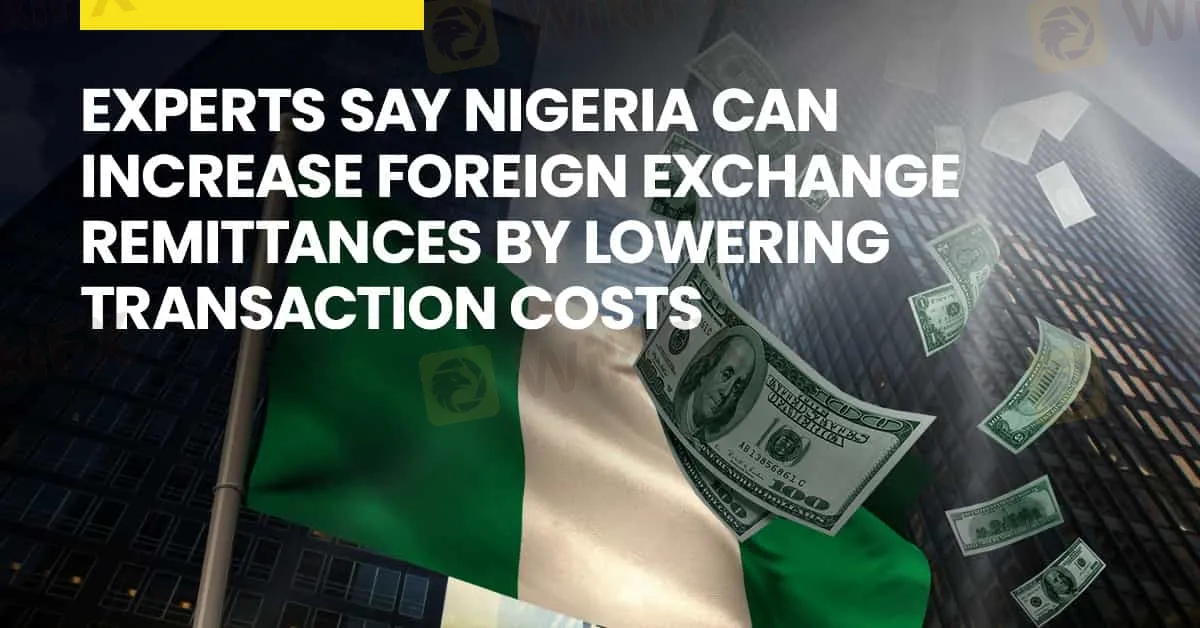
The foreign exchange market, often known as the currency market, FX is a worldwide decentralized over-the-counter (OTC) market where currencies are traded. The foreign exchange rates for each currency are set by this market. It covers every facet of purchasing, selling, and converting currencies at established or current rates. It is by far the biggest market in the world in terms of trade volume, with the credit market coming in second.
Experts have recommended steps Nigeria has to adopt to increase the amount of foreign currency remittances coming into the country.
To encourage the diaspora to send more foreign exchange to Nigeria, one strategy is to lower transaction costs for them.
Stakeholders discussed additional measures at a Central Bank of Nigeria (CBN) roundtable on Wednesday during the World Bank/International Monetary Fund (IMF) Spring Meetings in Washington, DC. These measures included, among other things, offering products that are appropriate for the diaspora community and providing additional options for receiving remittances.
Participants from both local and foreign markets, including Lemfi, Flutterwave, J.P. Morgan, Remitly, VertoFx, Interswitch, BudPay, Makeba, TapTap Send, Visa, Venture Garden Group, and other remittance industry participants, attended the session.
Among the goals the Central Bank of Nigeria (CBN) stated during the meeting are;
CUTTING TRANSACTION COSTS: One of the main topics of discussion was cutting remittance transaction costs, which the CBN recognized as a major impediment to formal inflows. Stakeholders determined that lowering the cost of origination for remittances was necessary to lower transaction costs. There was also agreement on the necessity of encouraging competition in the remittance sector in order to drive down prices. In addition, participants called for the exclusion of Nigeria from the Financial Action Task Force (FATF) and promoted regulatory reforms.
REMITTANCE INFLOWS VIA OFFICIAL CHANNELS SHOULD BE DOUBLED: The CBN has set this as one of its major goals. The participants emphasized the need of strengthening data systems, maintaining consistent prices, offering more ways for people to receive their remittances, offering products that meet the needs of diaspora communities, encouraging new ideas through sandbox programs, and making it simpler for international money transfer organizations (IMTOs) to sell directly into NAFEM.
CREATION OF A STAKEHOLDERS' FORUM ON IMTOS: Concerning this goal, stakeholders pushed for the creation of a special platform for interacting with IMTOs. It was mentioned that the goal of this platform would be to promote cooperation with regulators while educating and organizing the diasporan population.
COMPLIANCE STANDARDIZATION: The CBN emphasized the significance of standardized compliance procedures and pledged to work with authorities and pertinent organizations to improve efficiency, lower friction, and streamline remittance payment channels.
The significance of standardized compliance procedures was emphasized, and the CBN pledged to work with appropriate authorities and regulators to improve efficiency, lower friction, and streamline remittance payment channels.
WHAT YOU OUGHT TO BE AWARE OF
According to World Bank estimates, Nigeria receives $20.5 billion in remittances each year. However, the CBN updated its remittance company regulatory framework in January 2024 in an effort to increase foreign exchange inflows.
The updated standards stipulate that the minimum paid-up share capital of remittance businesses must be N2 billion, and the technical partners of these IMTOs must have a minimum net worth of $1 million.

Disclaimer:
The views in this article only represent the author's personal views, and do not constitute investment advice on this platform. This platform does not guarantee the accuracy, completeness and timeliness of the information in the article, and will not be liable for any loss caused by the use of or reliance on the information in the article.
Read more
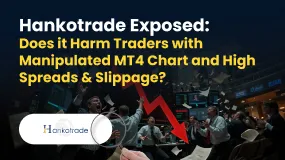
Hankotrade Exposed: Does it Harm Traders with Manipulated MT4 Chart and High Spreads & Slippage?
Have you witnessed a manipulated MT4 chart on Hankotrade login, showing inaccurate trading figures? Have you been victimized by high swap fees, inflated spreads, and massive slippage? Is the payment processing time too long at Hankotrade? Do you face downtime issues, especially when the New York trading session is on? These are some top complaints against the Belize-based forex broker. In this article, we have shared these complaints. Take a look!
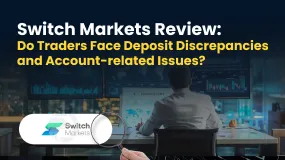
Switch Markets Review: Do Traders Face Deposit Discrepancies and Account-related Issues?
Do you fail to deposit your funds into the Switch Markets forex trading account? Earned profits, withdrew them too, but did Switch Markets block your deposits? Wanted to close your trading account due to payment-related issues, but in turn got your emails blocked by the Australia-based forex broker? Faced a negative trading account balance because of illegitimate trade order execution? Many traders have shared these stories about Switch Markets on broker review platforms. In this Switch Markets review article, we have mentioned the same. Read on!
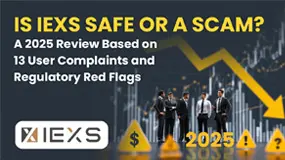
Is IEXS Safe or a Scam? A 2025 Review Based on 13 User Complaints and Regulatory Red Flags
You're asking a direct and important question: Is IEXS safe or a scam? As someone who might trade with them or already does, this is the most important research you can do. While IEXS says it is a global broker with over ten years of experience, a detailed look at its regulatory status and many user reviews shows serious warning signs that cannot be ignored. The evidence suggests a high-risk situation for traders' capital. This review will examine the available information, from official regulatory warnings to concerning first-hand user complaints, to give you a clear and fact-based view of the risks involved in trading with IEXS. Our goal is to give you the facts you need to make a smart decision.
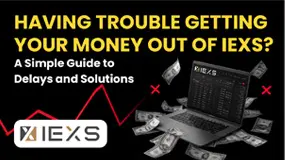
Having Trouble Getting Your Funds Out of IEXS? A Simple Guide to Delays and Solutions
Are you having trouble withdrawing funds from your IEXS account or facing delays getting your funds? Not being able to access your own capital is one of the most stressful situations any trader can face. It breaks down your basic trust with a broker. This isn't just annoying - it's a serious problem that can mess up your financial plans and cause a lot of worry. This guide goes beyond basic advice. We'll look at real user experiences and official regulatory information to give you clear answers. Our goal is to help you understand why IEXS withdrawal problems happen and show you practical steps you can take. We understand your concerns and want to give you the information you need to handle this tough situation.
WikiFX Broker
Latest News
150 Years Of Data Destroy Democrat Dogma On Tariffs: Fed Study Finds They Lower, Not Raise, Inflation
FIBO Group Ltd Review 2025: Find out whether FIBO Group Is Legit or Scam?
Is INGOT Brokers Safe or Scam? Critical 2025 Safety Review & Red Flags
Trillium Financial Broker Exposed: Top Reasons Why Traders are Losing Trust Here
Amillex Withdrawal Problems
IEXS Review 2025: A Complete Expert Analysis
IEXS Regulation: A Complete Guide to Its Licenses and Safety Warnings
Oil and gas giant Wood plc sold to Dubai engineering firm
FONDEX Review: Do Traders Really Face Inflated Spreads & Withdrawal Issues?
【WikiEXPO Global Expert Interviews】Ashish Kumar Singh: Building a Responsible and Interoperable Web3
Currency Calculator



